-
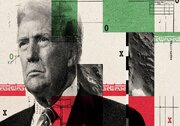
Analysis: Why Do Trump’s Critics and Opponents Welcome His War with Iran?
In the US, any decision by president for entry into a large-scale military conflict marks a decisive turning point. When it comes to Donald Trump, it seems that some of his home and foreign critics not only are not concerned about such a decision, but also even cautiously look forward to see it. An analysis of these critics' positions reveals a stark reality and it is that they likely grasp the treacherous political-military minefield ahead more clearly than Trump's own hawkish supporters.
-
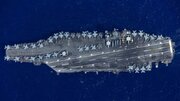
Analysis: Can Iran Destroy US Aircraft Carrier?
As tensions heighten in West Asia region and the US says it has deployed to this region its carrier strike group led by USS Abraham Lincoln aircraft carrier north of the Arabian Sea, one question repeats itself: Can Iran sink an American aircraft carrier?
-
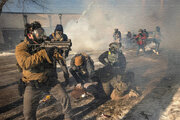
Trump’s version: Repression at home, chaos for others!
For Trump, even chaos is legitimate when it occurs against America’s geopolitical rivals. But when that same logic of protest reaches American streets, it is immediately redefined as rebellion, terrorism, and a threat to national security.
-
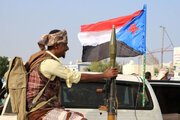
Analysis: Riyadh Meeting and Re-engineering Southern Yemen Dynamics
In recent days, Saudi Arabia has stepped up its work to prepare for a meeting set to host major Yemeni factions including the recently dissolved Southern Transitional Council (STC), Hadhramaut and Al-Mahrah tribes, Aden elites, and the elements of Presidential Leadership Council (PLC) in Riyadh.
-
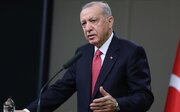
Analysis; The Bear’s Friendship: A Look at Recent Turkish Comments on Iran
A tale from rich Persian literature, "The Bear's Friendship", known in popular folklore as "Auntie Bear's Friendship", has gained startling new relevance in today's international affairs, particularly when analyzing recent stances taken by certain neighboring states regarding Iran.
-
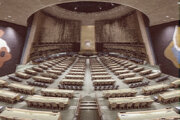
Fall of international legal order: Last chapter of US-Zionist hybrid warfare against Iran
The recent violent assault on Iranian sovereignty by the US-Zionist entity marks an escalation in the ongoing hybrid warfare against the Islamic Republic. This operation must be understood as a continuum, building upon previous measures, such as military aggression, targeted assassinations, crippling economic sanctions, ongoing psychological warfare, mass misinformation campaigns, and the persistent threat of further military action.
-

Analysis / ISIS Prisoners Break Free: Conflicting Goals of Kurds and Al-Jolani Govt.
Following the recent developments in eastern and Northern Syria, reports suggest that hundreds and even thousands of ISIS prisoners broke free from prisons controlled by the Kurdish forces. This terrorists prison break comes as both Syrian Democratic Forces (SDF) and the interim Syrian government trade blames for the mass escape.
-
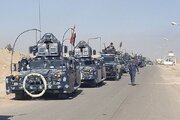
Analysis: With ISIS Inmates Breaking Free, Security Threats Are Back to Iraq
Concerns about re-eruption of instability of the past decade have begun to rise following fresh clashes between the Syrian Democratic Forces (SDF) and Hayat Tahrir Al-Sham (HTS) led by Abu Mohammad al-Jolani, who is the current interim president of Syria. These concerns are not merely about the security consequences of these two groups near the Iraqi borders. These consequences become more serious when we know that recent reports talked about 1,500 ISIS fighters escaping Al-Shaddadi prison in Syria’s Hasakah province.
-

Say her name: "Marzieh Nabavi Nia"
Marzieh Nabavinia does not complete the West’s narrative of the Iranian woman; therefore, her name must be erased. We will not abandon her name.
-
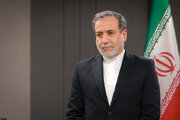
Legal Accountability of A Brazen Interference: US Must Be Held Accountable
In the following article, Dr. Seyed Abbas Araghchi, the Minister of Foreign Affairs of the Islamic Republic of Iran, has explained the legal accountability of America's blatant intervention in the country's recent US-Zionist- backed riots.
-
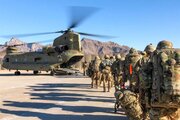
Analysis: What’s behind US Military Relocation from Ain Al-Assad to Al-Harir?
The occasional US military moves in Iraq, especially amid critical regional developments, have always made news headlines and fed various political speculations. In recent days, the US once again made an important new change to the deployment of its forces Iraq and, according to the official Iraqi news agency, it has fully evacuated Ain Al-Assad military base and handed it over to Iraq.
-
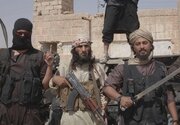
Analysis: Taliban’s Terrorism Playbook Making Afghanistan an ISIS Breeding Ground
Despite Taliban leaders’ claims about obliteration of all ISIS cells in Afghanistan, field evidence and various reports show that the members of this terrorist group are still active in some parts of the country, and using different new tactics and strategies, they are reorganizing to regenerate insecurity and threats against civilians.
-

Analysis: What’s the Agenda of Iraqi FM During Tehran Visit?
Amid the US push to obstruct Iran-Iraq economic and political relations, officials of the two neighbors hold regular meetings in a bid to boost bilateral cooperation at all levels.
-

Analysis: What’s Driven Strong Saudi Response to Southern Yemen Developments?
In definition of regional alliances and coalitions, one can no longer simply call Saudi Arabia and the UAE allies. Not long ago, the two Arab countries had common approaches to many geopolitical developments in the Persian Gulf and the Arab world and in many cases advanced similar policies, including voicing concern about the US invasion of Iraq, ...
-
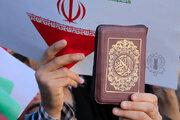
This is voice of Iranian nation
Tehran has witnessed many glorious and epic days. Days when the people felt the need to take to the streets, and with their presence, thwart the enemy’s plots and awaken the deluded from their slumber. However, what took place in Tehran on the afternoon of January 12 was something beyond the enduring epics of the past; in a single word, it was an unparalleled divine day.
-
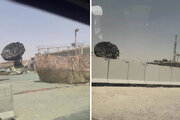
It’s a mistake to test the tried: They threaten victor of 12-Day War with a military attack!
The withering of armed street unrest — conducted under the direction of terrorists affiliated with foreign intelligence services — has forced the operations room of the unrest project to change strategy: “highlighting the possibility of a U.S. military attack on Iran.”
-
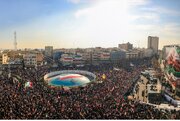
Analysis: Europe’s Diplomatic Hostility to Iran Following Riots Discloses Hidden Intentions
Eruption of riots in some Iranian cities in recent weeks has once again created a new ground for some Western governments’ interventions that ride on waves of violence caused by some vandals and rioters under the name of support to human rights and democracy to intensify their hostile policies against the Islamic Republic of Iran.
-
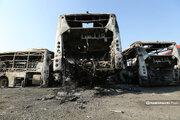
Analysis: How Have West, Israel Supported Riots in Iran?
Years of planning for riots in Iran and then toppling of the Islamic Republic by the Israeli regime and the US were shattered by a big popular move on Monday. Reports suggest that during the pro-government rallies held on Monday in the capital Tehran millions took to the streets to condemn terrorist actions by the rioters. People chanted ant-terror, anti-Israeli, and anti-American slogans.
-

Analysis: What Would Be Iranian Scenarios for a US Military Intervention?
As during the 12-day Israeli war on Iran in June the troika of leadership, people, and powerful armed forces slapped the Israeli enemy hard in the face and shattered its plot to bring Iran to its knees using military force, in recent days a scenario designed by foreign intelligence agencies to destabilize Iran and ..
-

Report: Greenland, the US Codename for Aggression against Europe
Trump’s appetite for threat and aggression against foreign countries and territories looks insatiable. Greenland is one of the latest territories subject of the US threat of occupation, to an extent that the US President Donald Trump has recently at a meeting in Washington claimed that seizing Greenland is necessary for the American national security and defense, adding that taking this Danish territory may come peacefully or forcefully.
-
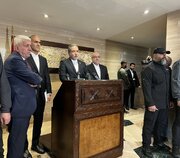
Analysis / Breaking the Ice: Iran’s Araghchi Visit to Beirut Signals New Chapter
The visit to Beirut of the Iranian Foreign Minister Abbas Araghchi amid the Israeli military escalation and attacks against Lebanon made the most important headlines in the region in recent days, grabbing the attention of the observers about the issues of discussion and the outcomes of this visit to see its influence on the fast-moving regional developments, especially the US and Israeli push to disarm Hezbollah.
-
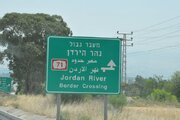
Water theft Tel Aviv–style: Zionist regime and breach of Jordan’s water rights
Jordan, after Egypt, became the second Arab‑Islamic country to pursue the normalization of relations with the Zionist regime. On October 26, 1994, Jordan and the Zionist regime signed a peace treaty known as the Wadi Araba Agreement. Part of the agreement on normalizing relations between Jordan and the regime states: “Aiming at the achievement of a just, lasting and comprehensive peace in the Middle East based on Security Council resolutions 242 and 338 in all their aspects.”
-
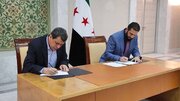
Analysis: Kurdish Merger an Unsettled Challenge for Damascus and Ankara
While the US and Turkey earlier had set a deadline by end of 2025 for the Kurdish militias and interim Syrian government led by Abu Mohammad al-Jolani to agree on a mechanism merging the Kurdish forces into the regular Syrian army, the two sides have failed to strike a deal despite several rounds of negotiations.
-
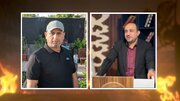
Analysis: Assassination of Sadrist Comdr., a Prelude to Grand Plot against Iraqi Resistance
The mysterious assassination of Hussein al-Allaq, a senior commander of Iraq's Al-Salam Brigades (Saraya Al-Salam) as the military wing of the Sadrist Movement in the city of Amarah in southern Iraq has triggered serious concerns about the hidden hands seeking to destabilize Iraq.
-
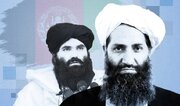
Analysis / From Kabul to Kandahar: How Serious Is Taliban Leadership Gap?
Before the Taliban could seize the power in Kabul, the group for decades had firmly maintained its internal cohesion. 20 years of confrontation with the American military contributed to this unity within the Taliban ranks. However, since taking the power in August 2021, they have faced challenges endangering their internal cohesion and stability of Afghanistan.
-
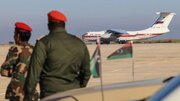
Analysis: How’s Southern Libya Become a Focal Point in New Russian Strategy?
The geopolitical developments of West Asia and North Africa in recent years and especially after fall of Bashar al-Assad of Syria later in 2024 have once again brought to focus on the Russian strategic realignment in these regions. While many Western analysts have expected Moscow to embark on a strategic retreat after losing its key military bases in Russia, field evidence and security reports suggest that Russia, along with minimally reestablishing itself in Syria, is working in a targeted way to build an alternative strategic and supplementary platform in southern Libya.
-
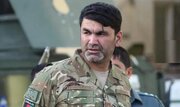
Analysis / Assassinating Afghan Figures in Iran: What’s the Goal?
After Taliban's takeover of power in Afghanistan in August 2021, a large number of previous government's security and military officials fled the country fearing prosecution and having doubt about Taliban's declaration of general amnesty. Though the Taliban's approach was on the surface in favor of issuing amnesty to the previous government officials, in practice the group launched campaigns of targeted prosecutions and arrests against former officials especially military officials and anti-Taliban forces.
-
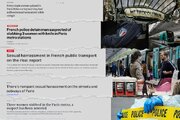
French women fight for their basic freedoms!
“The fact a woman or girl changes her timetable or route for fear of being attacked should make us question the freedom of access of all citizens to the public transport service.” These words, spoken by former French Sports Minister Roxana Maracineanu, expose a harrowing truth concealed beneath the polished façade of France’s cities and streets.
-

Analysis: Somaliland, Israel’s New Gamble in Horn of Africa
In recent years, Somaliland has transformed from a marginal and less known region in north of Horn of Africa into an emerging actor in the regional and international geopolitical equations. This shift stems from its strategic position near Gulf of Aden and Bab-el-Mandeb Strait and its bonds with world shipping lines.
-
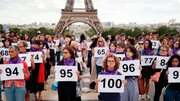
Myth of Women's Protection; West's Unique Record in Femicide
For decades, the West has presented itself as the safest geography for women; a shining showcase of women's rights and gender equality. But behind this attractive facade lies a dark reality: structural and repeatedly recurring femicide is a chronic crisis in America and Europe, which is neither unusual nor accidental.